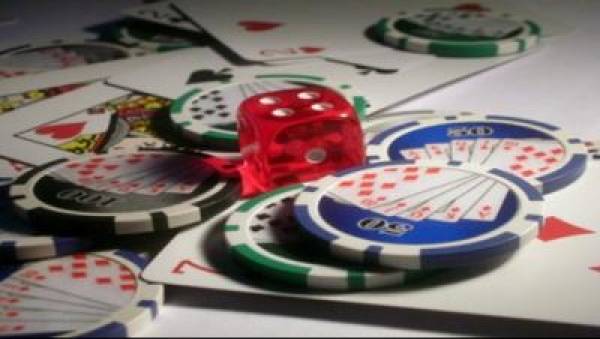Pennsylvania Leads U.S. in Gaming With Tax Windfall

(Bloomberg News) - - Ralph Attarian, a 47-year-old caddy, puffed cigarettes as he played a penny slot machine in Philadelphia’s SugarHouse Casino, adding to the pot of money that has helped Pennsylvania reap more tax revenue from gambling than any state for three years running.
“I just come here to kill some time,” he said one weekday morning as he tried his luck 2,500 miles (4,000 kilometers) from the Las Vegas Strip. Players such as Attarian are proving a windfall for Pennsylvania, which is using the revenue to diversify its tax base and ease property levies.
“It ends up making you less reliant on taxing residential real estate,” said John Donaldson, director of fixed income at Radnor, Pennsylvania-based Haverford Trust Co. “In this cycle, residential real estate was one of those things hit the hardest.”
The Keystone State is one of 22 raking in casino gambling tax revenue. Yet its tax rates on the games are as much as seven times higher than Nevada’s. In 2011, Pennsylvania took in almost $1.5 billion from the industry as table games introduced in 2010 added to the cash generated by slots, according to an American Gaming Association survey. Nevada’s $865 million take ranked it second, according to the group, which doesn’t count casinos run by American Indian tribes. Indiana came in third.
Atlantic City’s Loss
The 9.6 percent increase in Pennsylvania receipts came partly at the expense of Atlantic City, as New Jersey’s casino tax revenue fell 9.1 percent to $278 million last year, the survey shows. The gain also occurred as new competition arose in neighboring states such as Maryland.
Pennsylvania’s first casino opened in 2006. The growth has helped restrain residential property taxes in Pennsylvania, with $782.5 million of gaming proceeds slated to go toward credits against levies for local school districts, according to a state estimate. Governor Tom Corbett, a Republican, has proposed a fiscal 2013 budget that cuts spending to about $27.1 billion from $27.2 billion this year.
Cash produced by Pennsylvania’s 55 percent tax on slot- machine revenue also flows to local governments and the horse racing industry, said Richard McGarvey, a spokesman for the Pennsylvania Gaming Control Board. Nevada’s gambling tax rate peaks at 7.75 percent.
“If you’re getting a billion dollars of revenue, that’s good news for investors if you have an administration that’s going to be aggressive about cutting the budget,” said Chris Mier, managing director at Loop Capital Markets LLC in Chicago.
Beating New Jersey
Debt of Pennsylvania issuers has outperformed securities from neighboring New Jersey.
Pennsylvania state and local tax-exempt securities yield about 2.39 percent, similar to those from New Jersey, Bloomberg Fair Value data show. That’s a change from the past five years, when Pennsylvania issuers’ yields averaged about 0.09 percentage point higher than New Jersey’s.
Increasing gambling options in neighboring states won’t damp revenue prospects from Pennsylvania’s “highly competitive” facilities, said Bill Lerner, a Union Gaming Group analyst in Las Vegas.
“The table-game business in Pennsylvania is still ramping up,” he said by telephone, referring to activities such as roulette and poker. “It’s a solid market, with good product.”
Pennsylvania “certainly helped to fill a void” for the mid-Atlantic region and the gaming companies fostered excitement by staggering casino openings, said Holly Wetzel, a spokeswoman for the Washington-based gaming industry association.
2010 Debut
SugarHouse, which opened in 2010, contributed to a 21 percent annual increase in consumer spending in such venues last year, according to the gaming group. Pennsylvania’s 11th casino opened in March, McGarvey said, and the law permits four more.
Players are coming from markets that include those feeding casinos in Atlantic City, said Eric Schippers, a spokesman for Wyomissing, Pennsylvania-based Penn National Gaming Inc. (PENN) (PENN) The company runs the Hollywood Casino in Grantville, about 15 miles from Harrisburg, Pennsylvania’s capital.
“These facilities have provided a new entertainment option for people to go out and spend their discretionary dollars,” Schippers said. Consumer spending on gaming fell 7 percent in New Jersey to $3.32 billion last year, according to the industry group. New Jersey’s tax on the receipts is about 10 percent.
Hollywood, which opened in 2008, ranks third in revenue among Penn National’s 26 North American venues, Schippers said. Pennsylvania lawmakers designated gaming licenses for locations throughout the state so the sites “weren’t cannibalizing one other,” he said.
As more casinos have opened, industry employment rose to about 15,000 in 2011 from about 8,000 in 2009, according to a state gaming control board report.
Pennsylvania’s 2011 casino revenue was more than three times the $419.4 million it collected through taxes attributable to oil and gas drilling, according to the state Revenue Department.
Following are pending sales:
VIRGINIA TRANSPORTATION BOARD plans to borrow $600 million of revenue debt as soon as this month through competitive bid. Proceeds will help finance capital projects, according to documents from the board’s April 18 meeting. The bonds will mature annually from 2013 through 2037. (Added May 18)
MASSACHUSETTS is set to issue $350 million of general- obligation bonds as soon as next week to help finance capital projects. The debt will price competitively. The longest maturity for the bonds is 2042, according to offering documents. Standard & Poor’s rates Massachusetts AA+, second-highest. (Added May 18)













